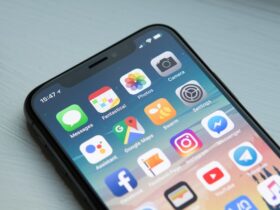5G has finally become a reality, and the main carriers – AT&T, Verizon, and T-Mobile – are building their respective 5G networks for businesses and consumers. The hype about 5G is not just due to the fact that it offers better data speeds. The fact is that it will also connect and facilitate drones, driverless cars, augmented reality, cloud gaming, virtual reality, and the Internet of Things. Eventually, 5G is expected to replace WiFi in both offices and homes. While large-scale adoption of this technology is yet to take place, many carriers have begun to introduce the service in select locations. If you’re looking to jump on the 5G bandwagon, here’s how to go about selecting your plan.
Determine if There Is 5 G Coverage in Your Area
Even if you own a 5G-enabled device, you won’t be able to connect to a 5G network unless the technology is available in your area. In the U.S., very few cities offer people access to 5G. So, the first thing you need to do is check if you have 5G coverage in your area.
Ensure You Have a 5G-Enabled Smartphone
To connect to a 5G network, you’ll need to have a phone that is compatible with the technology. Some of the phones that offer 5G connectivity are Samsung Note 10 Plus, Moto Z4M, and the LG V50 ThinQ 5G, among others.
Check out The Plans Offered by Different Carriers
Next, you’ll need to check the 5G plans offered by the main carriers. Here’s what’s offered:
- AT&T: AT&T offers 2 types of 5G services – 5G+ that uses the mmWave spectrum and another low-band network that’s available in around 80 locations.
- Verizon: Verizon’s 5G plans are available to customers in around 34 cities. The company is now also offering customers a home 5G service that converts 5G signals to WiFi so you can use your laptops and smart devices on the 5G network.
- T-Mobile: T-Mobile offers 5G coverage in many cities across the country, so make sure to check if you can access the carrier’s 5G plans.
If you are thinking of getting a new smartphone and reside in a big city, make sure to buy a phone that is capable of connecting to 5G. While these smartphones may be more expensive, there are future-proof, in comparison to phones that only support 4G.

























